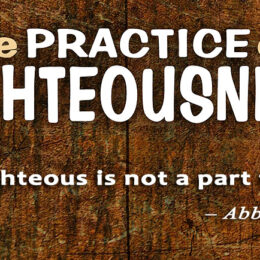Acton Institute | by Ray Nothstine | Oct. 21, 2009
Religious left icon Jim Wallis has popularized the maxim, “budgets are moral documents.” Yet the often repeated declaration is true in a way Wallis hasn’t envisioned, signaling bad news for Washington’s big spenders and those stuck footing the bill. Currently this country is facing no greater crisis than out of control spending and a mounting federal debt—a moral problem of prodigious proportions.
The Office of Management and Budget is projecting $9 trillion in deficits over the next ten years. Washington’s leaders have long paid lip service to the crisis, but their actions betray their words. The national debt is closing in on $12 trillion and unfunded liabilities like Social Security, Medicare, and other entitlement programs total $60 trillion. The looming budget and debt crisis transcend all current problems, and the crisis is visibly evident in the sliding value of the dollar. Former U.S. Comptroller General David M. Walker has warned that the country could go bankrupt in one generation. The poor and middle class will be affected most.
The government spent $451 billion of your money in 2008 alone to pay interest on the debt. The debt level as a fraction of gross domestic product is surging. Worse, there is no plan to address this crisis, and simply put, it will dramatically alter the quality of life for future citizens.
The president says the debt, with other threats to our fiscal stability, “keeps me awake at night.” Still, current lawmakers have only exacerbated an already dire situation by pushing new programs and reforms with no means to pay for them. Obama’s latest bid to “stimulate the economy”—by sending checks to 50 million Social Security recipients for no compelling reason—is more of the same. Attempts to hold the line on spending and restore fiscal discipline like a Balanced Budget Amendment, PAYGO (pay-as-you-go), or the line-item veto have all failed, either in Congress or the courts.
In his educational tours, former Comptroller General Walker often talks about a “leadership deficit,” rather than the spending deficit. He echoes the sentiment once expressed by the late Admiral James B. Stockdale who said: “Those who study the rise and fall of civilizations learn that no shortcoming has been surely fatal to republics as a dearth of public virtue, the unwillingness of those who govern to place the value of their society above personal interest.” Stockdale, known to many as Ross Perot’s running mate, was awarded the Congressional Medal of Honor for his leadership under difficult circumstances as a prisoner of war in Vietnam. His story provides a stark contrast with the “me first” leadership style in Washington.
The moral vacuum that seems to provide nothing but rhetoric on this issue is frightening. Even some Washington-based think tanks fall victim by ranking the importance of the debt issue differently depending on which party holds power. This year outraged citizens staged tea party rallies to rail against excessive spending, deficits, and the debt. The health care debate helped fuel the outrage. Whether you support the tea party movement or not, it is becoming increasingly evident that citizens may be the last hope for curtailing massive deficit spending.
“If we’re able to stop Obama on this it will be his Waterloo. It will break him,” Senator Jim DeMint said of President Obama’s health care plan. The clever quote provides an illustration of the partisan stakes in Washington now, where most of the attention of lawmakers is focused. But if our legislators keep sidestepping the spending and debt crisis, it could mean America’s Waterloo.
One thing is certain, continuing the status quo on spending and debt will spell defeat for liberty in America and massive tax increases for everyone. We must demand more from our government. It will certainly be demanding more from all of us in the years to come.
. . . more



